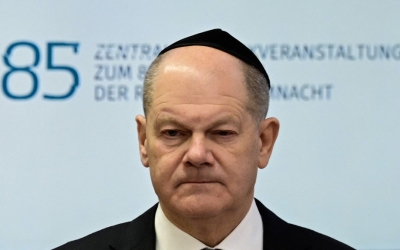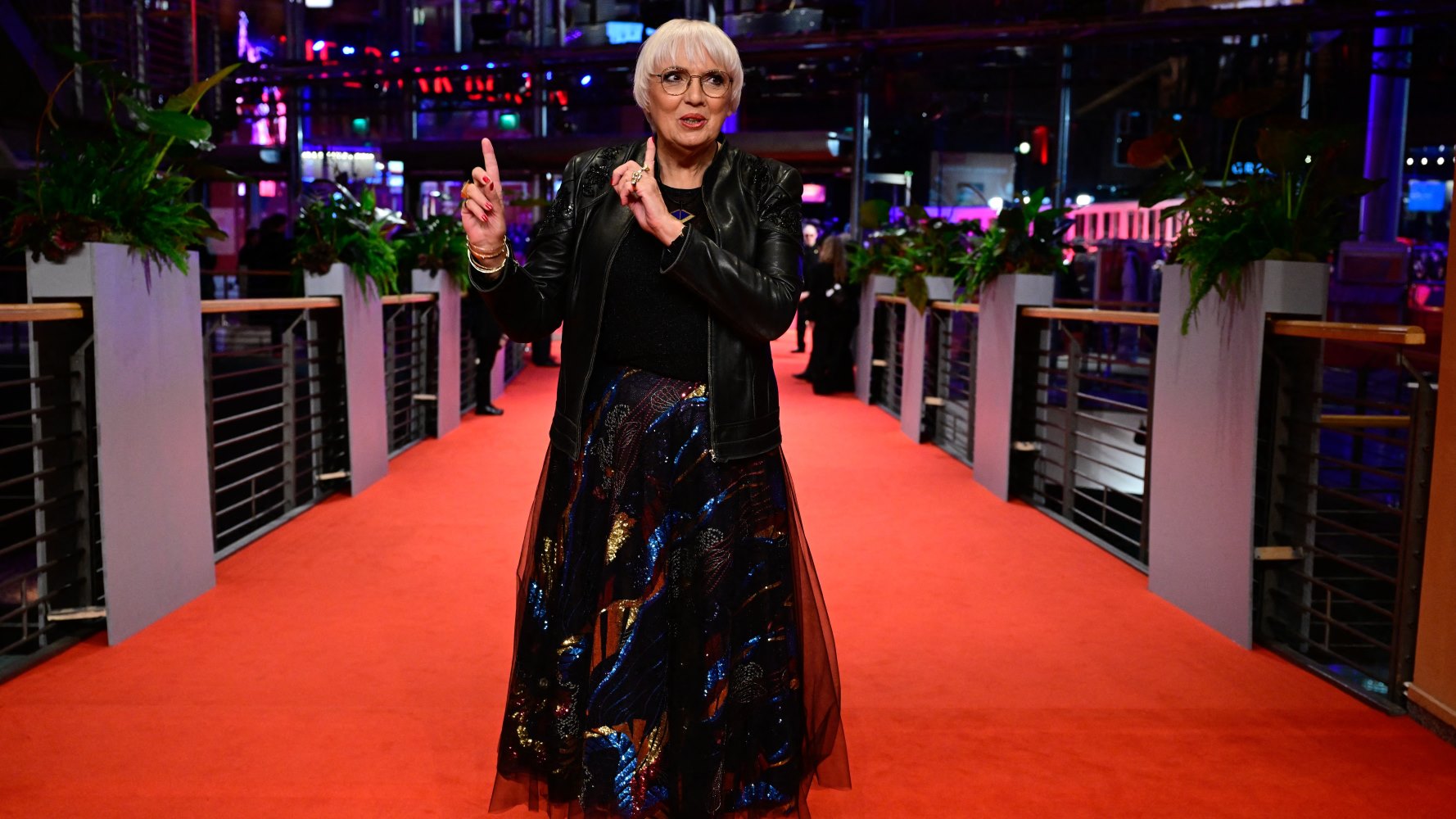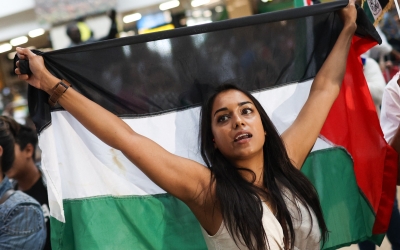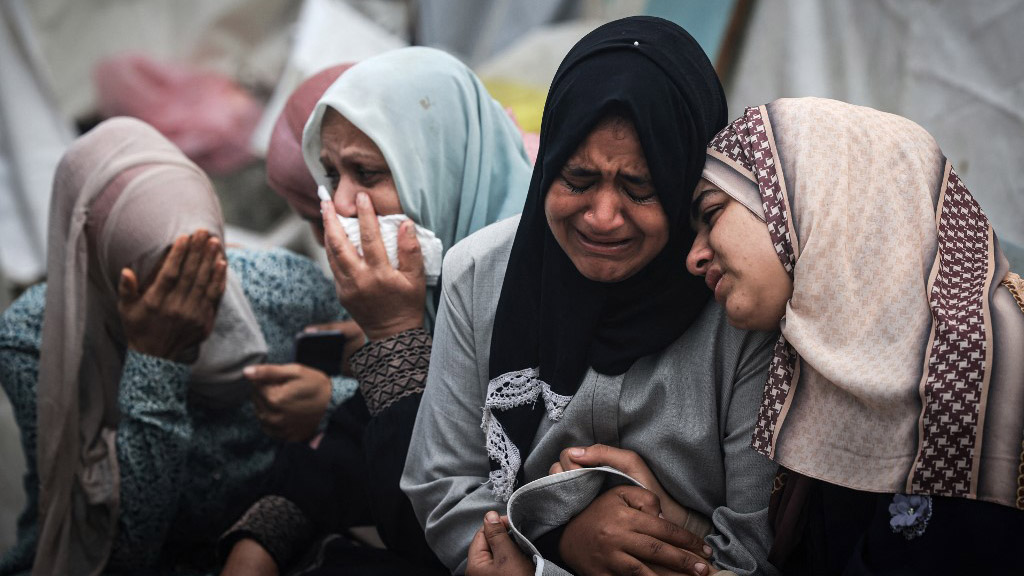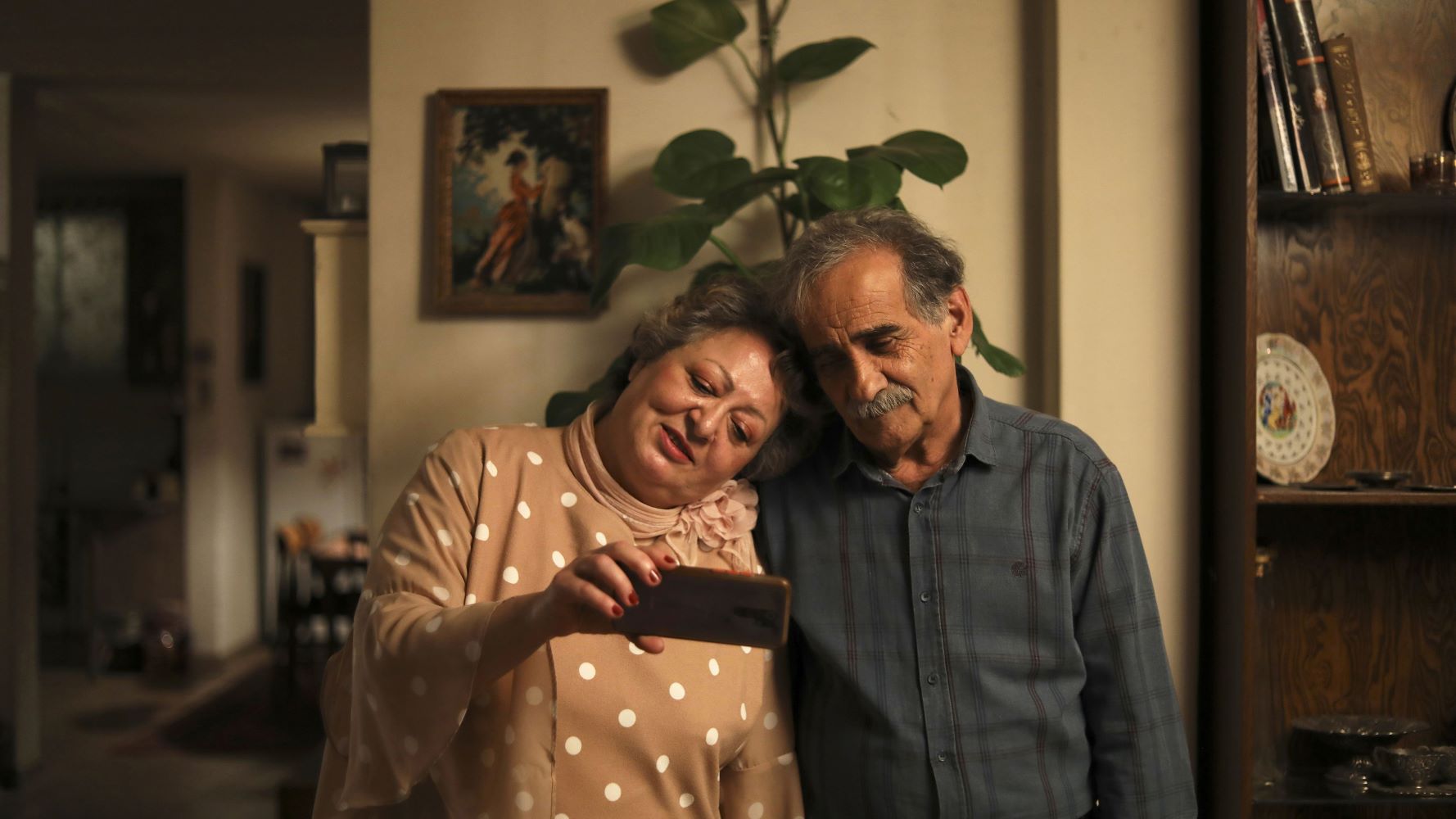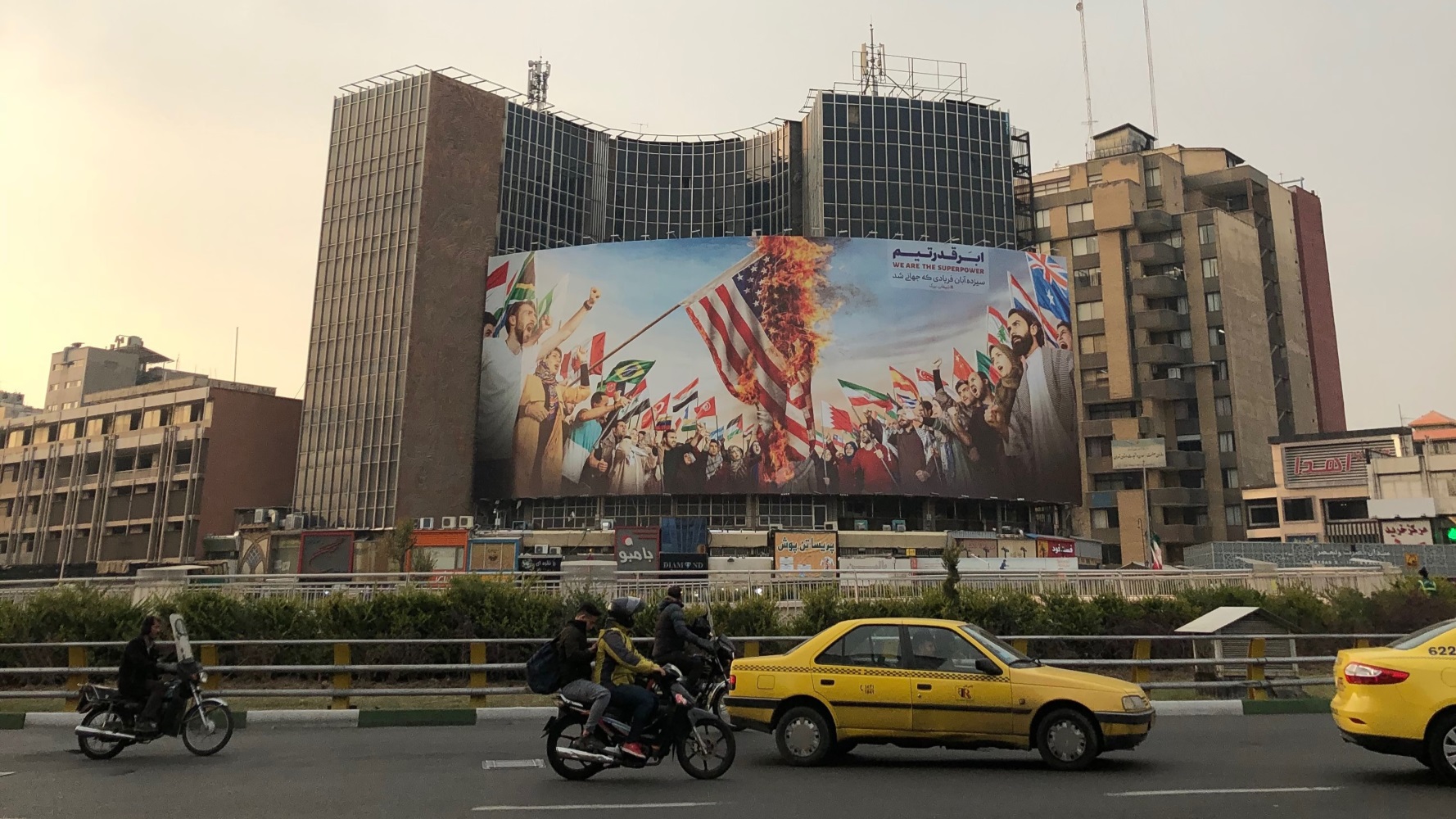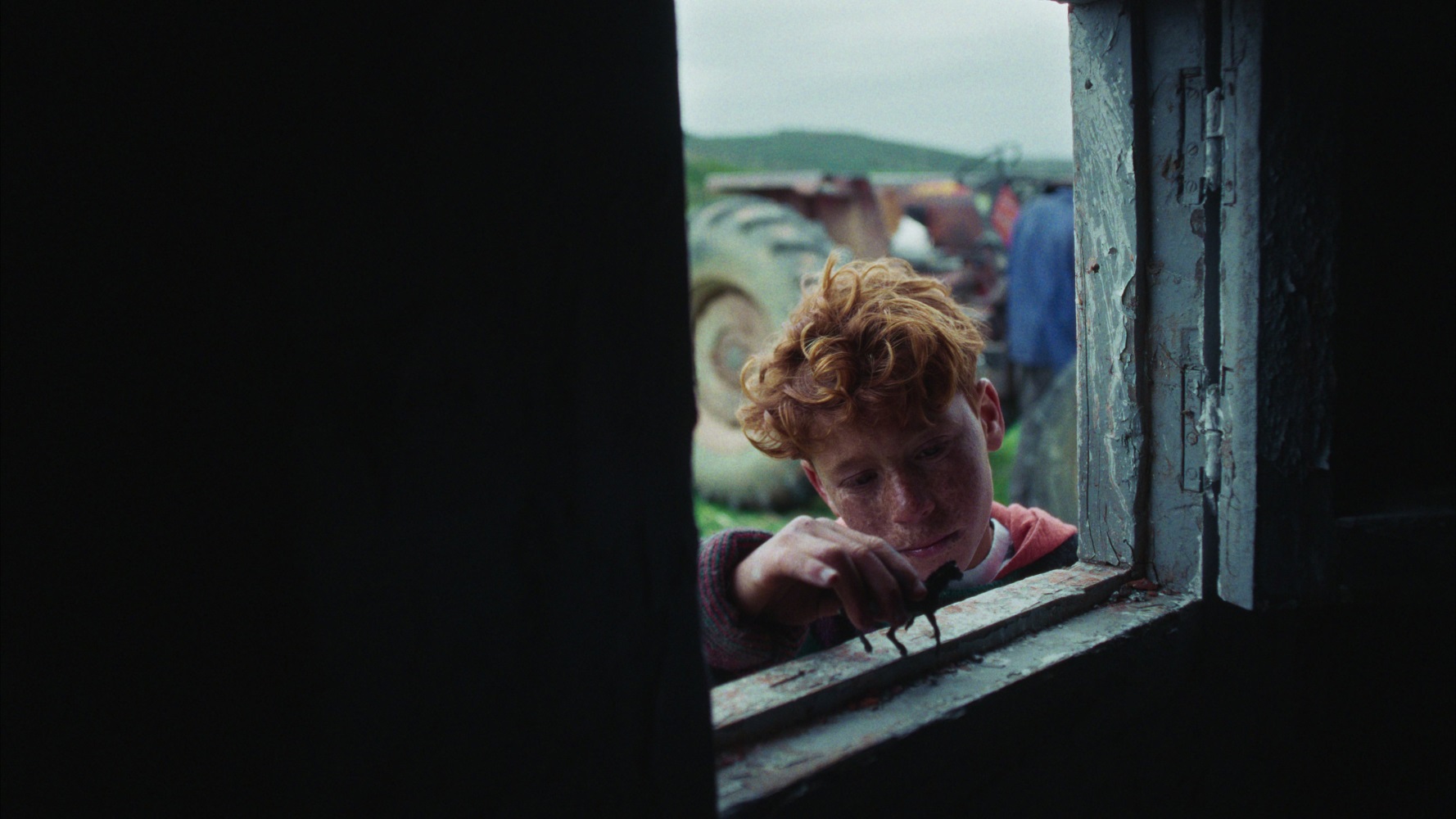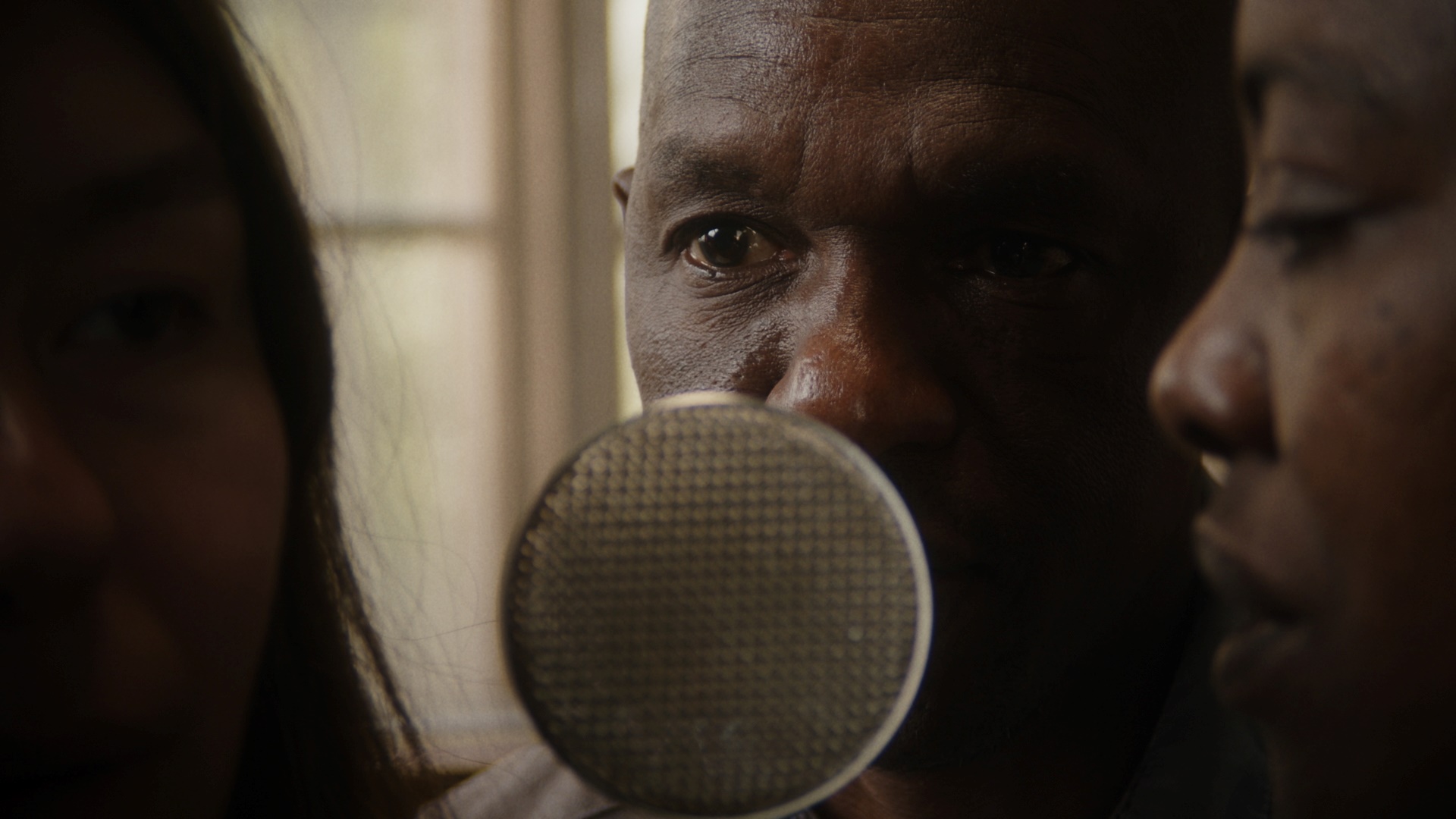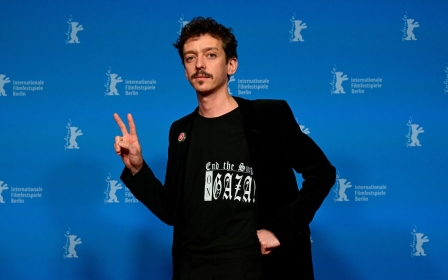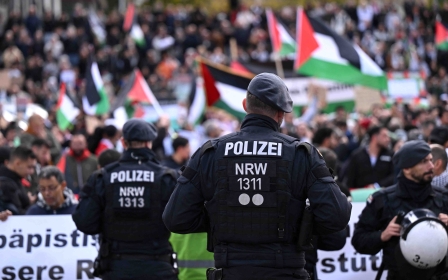A car crash Berlinale concludes with a German witch hunt against pro-Palestine filmmakers
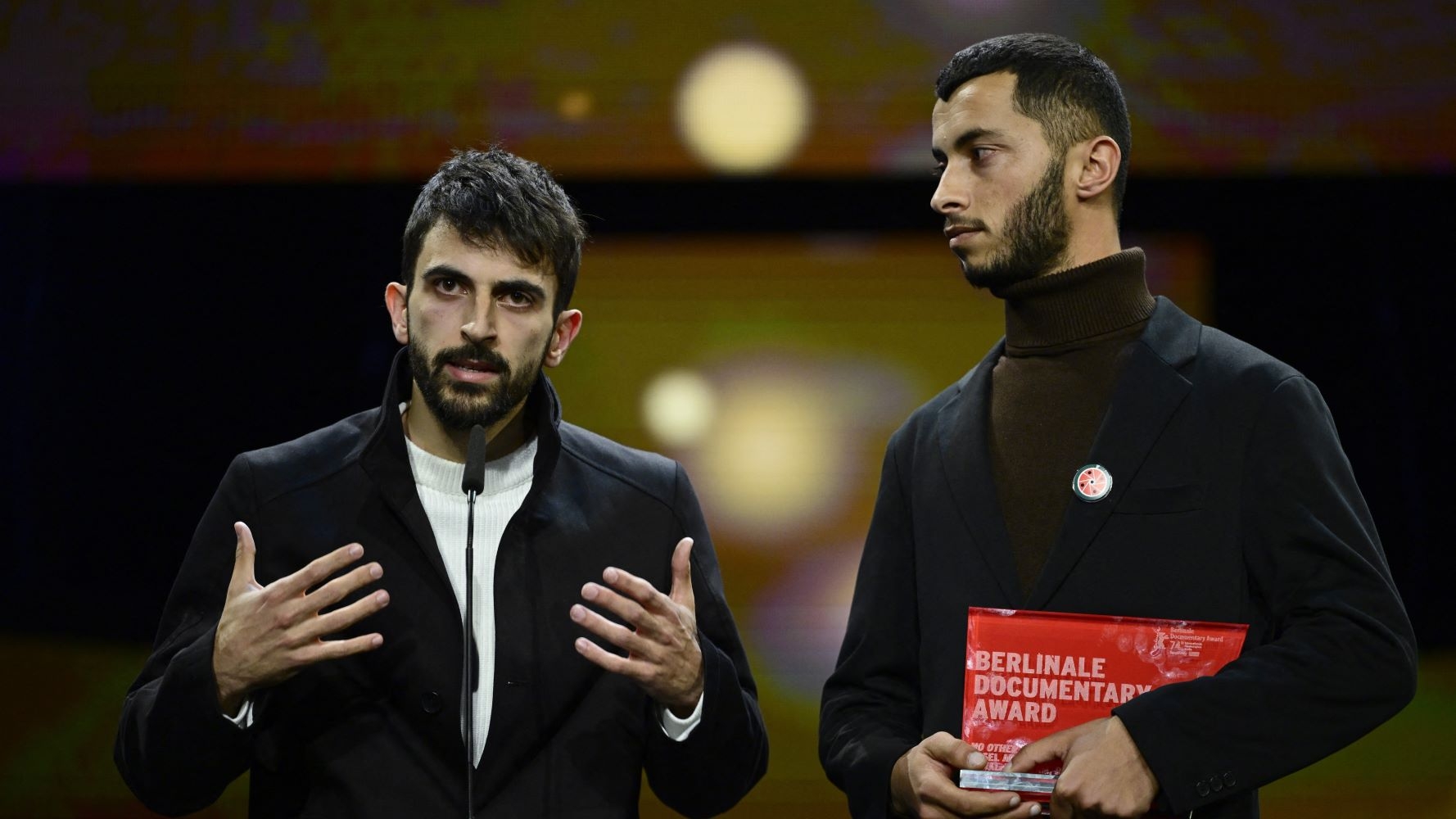
The closing ceremony of the 74th Berlin Film Festival (Berlinale) was a heartening act of solidarity, as filmmakers from across the world expressed their support for the Palestinian cause.
What transpired in the aftermath, however, was alarming; the most petrifying cultural reaction this writer has witnessed in Europe.
An anti-Palestinian storm spearheaded by German politicians and local press sought to prosecute any voice that dared criticise Israel. What I witnessed was not merely ugly, inhumane or unprofessional, it was outright fascistic.
After this, it is difficult to imagine how both the Berlinale and German culture can restore their sullied reputations.
The festival had strived to avoid the conflict in Gaza from the get-go, selecting just one Palestinian film in the Panorama sidebar, refraining from calling for a ceasefire, and relegating debate on the conflict to the enclosed Tiny Houses project, which no one paid attention to.
New MEE newsletter: Jerusalem Dispatch
Sign up to get the latest insights and analysis on Israel-Palestine, alongside Turkey Unpacked and other MEE newsletters
Protests sprang up over the course of the event but they were largely contained.
What organisers did not anticipate were the speeches by the winners, all selected by independent juries. These were a hammer blow at the core of German culture and the reaction to them revealed the tyrannical depths it has descended into.
Jordanian-Palestinian director Dina Naser wore the keffiyeh and carried a banner reading "Ceasefire" before receiving special mention at the sidebar Generations awards.
A jury member read an impassioned pro-Palestine statement at the queer Teddy awards.
The official ceremony featured seven statements by winners and jury members explicitly in support of Palestine, concluding with a speech by Golden Bear winner Mati Diop who said "I stand in solidarity with Palestine".
The subsequent backlash was concentrated on two films, however. The first is the French documentary Direct Action, which earned "best film" at the Encounters competition.
American co-director Ben Russell appeared with a keffiyeh on stage and finished his acceptance speech by saying: "Ceasefire now and we're obviously against the genocide."
The cancellation of Yuval Abraham and Basel Adra
The second film was No Other Land, which was co-directed by Israeli and Palestinian activists and earned the best documentary award.
Before handing the filmmakers the prize, jury members Thomas Heise from Germany and Verena Paravel from France spoke openly about the unflattering reality of Israeli occupation.
"There can't be more denying the relentless, abject horror of Israel's illegal military occupation and settlements of the West Bank," Paravel said. "May the world not turn away from this film."
The subsequent winners' speech has been the main talking point of festival coverage.
Israeli journalist and filmmaker Yuval Abraham says he has received death threats, after an Israeli news channel covered his award acceptance speech at the 74th Berlin Film Festival on Saturday and described it as “antisemitic”. pic.twitter.com/4MJmNnnolL
— Middle East Eye (@MiddleEastEye) February 26, 2024
Palestinian co-director Basel Adra attested that "thousands of my people are being slaughtered and massacred by his people in Gaza" and asked Germany to "stop sending weapons to Israel".
Israeli co-director Yuval Abraham's words were even harsher: "In two days [me and Basil] will go back to a land where we are not equal. I live under civilian law and Basil lives under military law. We live 30 minutes from one another.
"I am free to move where I want in this land, but Basel, like millions of Palestinians, is locked in the occupied West Bank. This situation of apartheid between us, this inequality, it has to end."
And then hell broke loose.
German backlash
The following day, hackers took over the Panorama Instagram page, plastering pro-Palestine messages including "Free Palestine: From the River to the Sea", a slogan now banned in Germany.
The Berlinale administration filed criminal charges against the unknown hackers. A pro-Israel demonstration followed on the last day of the event in front of the Zoo Palast, prior to the screening of No Other Land.
The mayor of Berlin, Kai Wegner of the Christian Democratic Union, berated the winners for their "intolerable relativisation" and branded their speeches "antisemitic".
He demanded the incoming management, headed by American programmer Tricia Tuttle, "ensure that such incidents do not happen again", stressing that "Berlin is firmly on Israel's side".
Various others, including Joe Chialo, senator for cultural affairs, Melanie Kuhnemann-Grunow, spokesperson on media policy for the Social Democrats (SPD), and Daniela Billig, spokesperson on arts policy for the Greens in the Berlin parliament, scolded the festival for giving a platform to anti-Israel speeches.
On Monday, Minister of Culture Claudia Roth announced that an investigation into the closing ceremony was due to be conducted.
Having been criticised for applauding the joint speech for No Other Land, the official X account for The Federal Government Commissioner for Culture and Media clarified on Monday night that Roth's clapping was strictly directed towards Abraham and not Adra.
The same night, the Berlinale issued a long statement about the closing ceremony, emphasising: "The sometimes one-sided and activist statements made by award winners were an expression of individual personal opinions. They do not reflect the attitude of the festival in any way.”
The outgoing co-director of the Berlinale, Mariette Rissenbeek, denied antisemitism accusations levelled at the speeches, but failed to condemn the attack on freedom of speech.
"The award winners' statements may have been one-sided in their empathy for the suffering civilian population in Palestine, but they have not made any statements that negate Israel's right to exist or are antisemitic," Rissenbeek said.
On Tuesday, Abraham revealed that a right-wing Israeli mob stormed his family's house, threatening relatives and forcing them to flee in the middle of the night. He also disclosed that he had received death threats.
"The appalling misuse of this word by Germans, not only to silence Palestinian critics of Israel, but also to silence Israelis like me who support a ceasefire that will end the killing in Gaza and allow the release of the Israeli hostages - empties the word antisemitism of meaning and thus endangers Jews all over the world," Abraham wrote on X.
"As my grandmother was born in a concentration camp in Libya and most of my grandfather's family was murdered by Germans in the holocaust, I find it particularly outraging that German politicians in 2024 have the audacity to weaponize this term against me in a way that endangered my family."
Nearly 100 Israeli filmmakers signed a statement of solidarity with Abraham and Adra, including Ari Folman (Waltz with Bashir), Berlinale Golden Bear winner Nadav Lapid, and Cannes winner Eran Kolirin (The Band's Visit).
The German media has been resolutely critical of both Roth and the Berlinale management with some outlets like De Welt going as far as interviewing relatives of Israelis killed on 7 October to give their coverage more emotional weight.
There was no mention whatsoever of the 30,000 Palestinians killed by the Israeli army thus far or the threats to Abraham's life.
Throwing filmmakers under the bus
Some members of the festival's management were convinced that calling for a ceasefire would not change anything and that the film selection would speak for the programmers' politics.
But with the widespread silencing of pro-Palestine voices in Germany, the call would have helped break the cultural silence over Gaza.
Outgoing artistic director Carlo Chatrian has distanced himself from the festival's politics; his name is conspicuously absent from the Berlinale's post-closing memos.
Since his highly successful stint at Switzerland's Locarno film fest, the Italian programmer has championed numerous Arab filmmakers, including Palestinians Annemarie Jacir and Kamal Al-Jafari; Tunisian Oscar nominee Kaouther Ben Hania and Lebanon's Joana Hadjithomas, to name a few.
Chatrian was an ally for Arab filmmakers, a passionate, accessible director always open for recommendations and eager to support new talents. With the sole exception of Amos Gitai's exceedingly critical Shikun, Israeli cinema has been notably absent from this year's Berlinale – an indirect political statement that went over the heads of the journalists.
History will judge whether Chatrian could’ve done more in combatting the encroaching censorship of pro-Palestinian voices, especially since the majority of its workers who railed against the AFD invitations did not draft a similar letter protesting Roth and Wegner’s comments.
Chatrian must be lauded and given due credit, however, for defending his filmmakers and the freedom of speech.
In a statement released on his social media accounts of Fridat, Chatrian wrote: “This year’s festival was a place for dialogue and exchange for 10 days; yet once the films stopped rolling, another form of communication has been taken over by politicians and the media, one which weaponizes and instrumentalizes antisemitism for political means.”
Chatrian added: “No matter our individual political convictions or beliefs, we should all keep in mind that freedom of speech is an essential part of what defines a democracy. The award ceremony on Saturday, Feb. 24 has been targeted in such a violent way that some people now see their lives threatened. This is unacceptable.
"We stand in solidarity with all filmmakers, jury members and other festival guests who have received direct or indirect threats, and do not back down from any programming choices made at this year’s Berlinale," the statement concluded.
The statement, it must be stressed, was not issued from the Berlinale’s official newsletter. This is Chatrian’s personal position. The Berlinale is yet to defend its filmmakers whom it threw under the bus – A mortal sin no festival can be absolved of.
What's now clear is that the festival is no longer the democratic and inclusive platform it always boasted to be.
Roth must apologise for her racist comments and festival workers must distance themselves from her. The incoming management must follow suit. It will be an uphill battle for Tuttle to mend the frayed relationship with Middle Eastern filmmakers, and hiring a token Arab or Muslim programmer will not be enough.
Berlin has an enormous community, encompassing the largest Palestinian population in Europe. This populace has been disenfranchised by a government that has deliberately been silencing them long before 7 October.
Roth and her entourage were supposed to be leftists, progressives within the German establishment; but that has proven to be a hoax.
While Roth's days are probably numbered, a better alternative does not lie on the horizon.
How the new management can navigate this highly toxic, morally compromised environment while standing up for filmmakers will be the biggest challenge for Tuttle.
Avoiding these pressing political questions is guaranteed to backfire and could lead to a justified industry-wide boycott.
The Films: My Favourite Cake
Regrettably, the political tornado overshadowed an otherwise stellar Middle Eastern selection; an eclectic and highly politicised line-up traversing diverse genres and aesthetics.
Iran continued its hot festival run with two of the most affecting pictures of the festival. The first is competition entry My Favourite Cake, the sophomore effort by Iranian duo Maryam Moghaddam and Behtash Sanaeeha.
Unfolding over the course of a single evening in Tehran, this is a bittersweet rom-com about an elderly, lonely middle-class woman who strikes up a short-lived romance with a cab driver.
Moghaddam and Sanaeeha tactfully impregnate their tragic comedy with biting political commentary, touching upon morality police, the resistance of women to the veil, and the near-impossibility of fleeting romance in a country where the regime remains as pervasive as ever.
My Favourite Cake is the second Iranian film, made inside Iran, this writer has seen in a span of a month that features lead actresses performing without a veil, a taboo that has remained intact since the eruption of the Islamic revolution in 1979.
The film offers its share of taboo-busting in its depiction of romance destined to end with sex. The secretive storing of wine by the elderly woman and the subsequent intoxication of the pair is also an unkosher sight in Iranian cinema.
Its daring politics aside, what distinguishes My Favourite Cake from its brethren is its tender humanity. Moghaddam and Sanaeeha's tender tale is both timeless and urgent; universal yet very specific; an irresistibly charming, disarmingly touching meditation on ageing, the cruel passage of time and the irrepressible need for connection.
My Favourite Cake works with and without the political subtext, and that's its biggest strength.
My Stolen Planet
Another film that takes the veil as a key motif is Farahnaz Sharifi's documentary My Stolen Planet, a diary tracing disparate chapters from the director's life – from her film school days to the aftermath of the Mahsa Amini protests and her exile.
Punctuated with a poetic voiceover, Sharifi weaves a deeply intimate tapestry on the discrepancy between personal and public memory, on moral duty of recording, on the liberating power of film.
Culled from thousands of hours of footage Sharifi collected along the years, film becomes the only space for women to be who they actually are and not whom they want to be; a record of the women as they once were, the women they could not always be.
For Sharifi, the veil has never been a mere piece of cloth ordered by Islamic law: it is a symbol of domineering patriarchy; a symbol of the suppression of self-autonomy; a symbol of the women they were forced to pretend to be and never were.
Who Do I Belong To
The biggest revelation of the Middle Eastern selection was Who Do I Belong To, the debut feature from Tunisian filmmaker Meryam Joobeur which appeared at the main competition.
Set in a small village in northern Tunisia, the story centres on a small family grieving its two sons who joined the Islamic State group.
The family's still existence is disrupted when one of the sons returns with a mysterious mute burqa-wearing wife. Suspicion takes over when a series of murders, all involving men, rocks the village.
An extension of Joobeur Oscar-nominated short, Brotherhood (2018), in Who Do I Belong To, the director dexterously coalesces different genres and different narratives in a gorgeously-shot picture, realised in earthy colours, that marry the macabre and the supernatural with the dreaminess of American master Terrence Malick.
By turns a rumination on the resilience of womanhood and the hazardous impact of unchecked masculinity on the family structure, Who Do I Belong To is not a film about the Islamic State. It's too subtle and too perceptive to offer direct political commentary or easy gratifications.
What we get instead is a hypnotic, enveloping experience that eschews psychology in favour of figurative imagery.
Joobeur strips down the serial killer genre to its philosophical essence, imbuing it with a newfound vitality and reshaping it in an unpredictable yet authoritative form.
Gripping in its narrative, surprising in its plot twists and captivating in its compositions, Who Do I Belong To is the first great Arab film of the year that marks the arrival of a genuine and unique talent.
hold on to her
Equally ingenious in form is hold on to her, an experimental feature by Belgian visual artist Robin Vanbesien.
The film recounts the murder of Mawda Shawri, a two-year-old Kurdish girl who was fatally shot by a Belgian police officer during a raid on a bus carrying migrants.
Forty activists from different backgrounds and ethnicities reflect on Mawda's murder, uncovering the racism of the Belgian judiciary system, police impunity and the language used to stigmatise foreign migrants.
Present footage of the ominous bus route and the vacant scene of the crimes evoke the murder, leaving the viewer to piece together the harrowing details of the lethal raid.
The end result is a perceptive account of societal apathy towards underprivileged lives: a provocative study of how self-righteous states rationalise their racism through the legal system and corrupt press.
Shikun
If films are exclusively judged by their politics, Amos Gitai's latest Shikun would have received full marks. A loose adaptation of Eugene Ionesco's play Rhinoceros, the latest work from the veteran Israeli filmmaker sees multiple Arab and Israeli characters talking about Israel's suppression of its guilt over its crimes against Palestinians, as fear grows towards the invisible roaming rhinoceros, a stand-in for the Palestinian other.
Shot before 7 October, the movie is filled with Gitai's staunch criticism of Israel's ghettoisation of Palestinians and the overriding blinding nationalism that mirrors the rise of fascism in Ionesco's source material.
As earnest as Gitai's intentions are, his politics are didactic, bluntly conveyed with heavy-handed symbolism, unbearably theatrical monologues and stilled scene arrangements devoid of artiness.
Shikun is old-fashioned stuff – an obvious, derivative piece that is a chore to watch. It was the worst film I saw in Berlinale 2024: a sad reminder of how art is no longer the focal point of a festival on life support.
Middle East Eye delivers independent and unrivalled coverage and analysis of the Middle East, North Africa and beyond. To learn more about republishing this content and the associated fees, please fill out this form. More about MEE can be found here.


